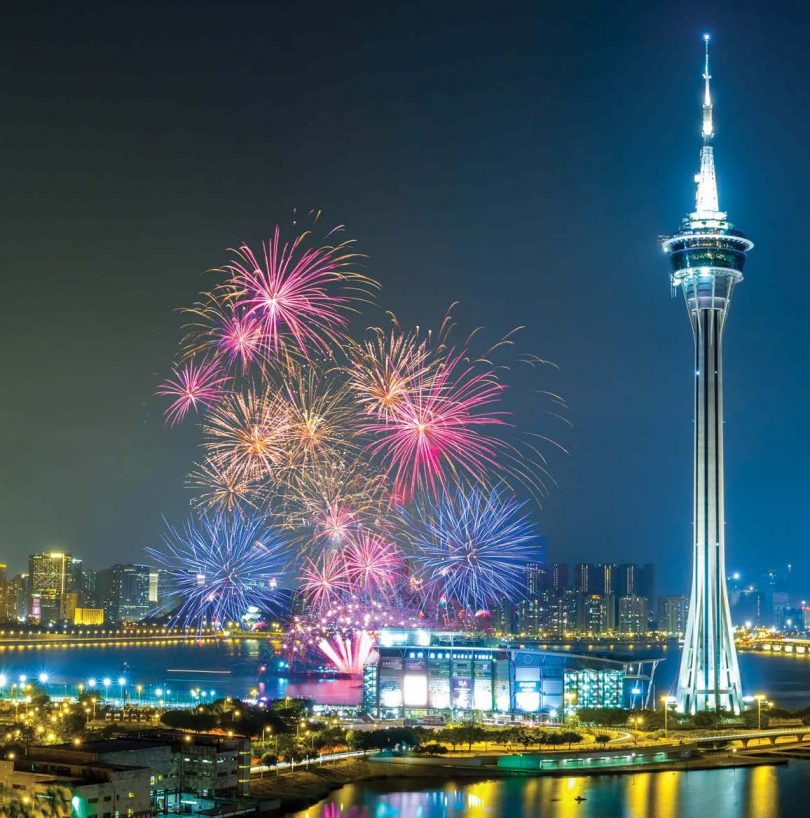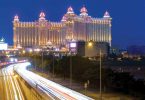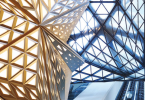Big things are planned for Macau in the coming years with a number of fascinating new initiatives recently announced to make the city the envy of the world.
What will the Macau of 2030 look like? If recent plans outlining the city’s future are anything to go by, it will be a very different place – not only Asia’s undisputed tourism hotspot but a technology leader as advanced as any city in the world.
Details of the government’s ambitious plan to transform Macau are contained in the Macao Tourism Industry Development Master Plan, a blueprint more than two years in the making unveiled by the Macao Government Tourism Office (MGTO) in late September. The Master Plan aims to synch Macau’s tourism industry with the long-term goals of the government, which has stipulated its intention to diversify Macau’s tourism offerings away from such a strong gaming focus so the city can become a “World Centre of Tourism and Leisure.”
In total it proposes eight key objectives, 33 strategies and 91 action plans for short, medium and long-term implementation including the development of a “distinctive” family-friendly theme park and better utilization of Macau’s surrounding seas via water sports, yachting and sightseeing boat trips.
What does this mean exactly?
While the concept of theme parks being built in Macau has long been discussed, the Master Plan calls for the MGTO to specifically “determine the appropriate measures and requirements of developing a theme park such as theme, concept and scale.” Under the planned timeline we can expect this theme park to be completed within six to 10 years.
Another proposal is the development of water sightseeing tours around Macau Peninsula, Taipa and Coloane and facilitation of boat-related entertainment programmes such as showcasing traditional fishing boats.
The Master Plan focuses heavily on potential waterbased activities, with the MGTO to “identify the type of water sports that can be implemented within Macau’s administrative zone” as well as “the locations for water sports and the corresponding supporting facilities.”
Other recommendations contained in the report include construction of a new meetings and exhibition complex, the hosting of more globally recognized events such as festivals and sporting events, the upgrading of Macau’s Grand Prix Museum and Wine Museum, development of an iconic cultural district, building a new and unique shopping complex and implementing smart tourism technology to improve the visitor experience.
That’s quite an ambitious plan for a city measuring just 30.5 square kilometers. However, the Master Plan also identifies zones for possible land reclamation in order to increase Macau’s land mass while finding the ideal location for each of these new attractions.

Those zones can be seen on the adjacent aerial photo of Macau and are as follows:
- Zone 4. Preferred location of a large cultural and commercial district.
- Zone 5. Possible new government administrative center and MICE complex near Macau Tower.
- Zone 6. Preferred location for a large commercial complex such as shopping mall.
- Zone 7. One of the areas identified for waterfront leisure tourism development.
- Zone 8. A mixed use commercial and cultural area.
Macau isn’t holding back on its ambitions either, having identified 10 global cities from which it conducted its tourism studies before implementing the Master Plan. Those cities were London, Paris, Dubai, Las Vegas, Los Angeles, Hong Kong, Singapore, Sydney, Bangkok and Kuala Lumpur.
“The selected cities are all world-class tourist destinations,” the Master Plan states. “For the future development of Macau’s tourism industry, it is significant to learn from these cities in terms of city branding, marketing, tourism positioning and tourism product diversification.”
However, it adds that, “It is important for Macau to be exceptional in its own way – to stand out from other tourist destinations by developing iconic tourism products. This can include a physical development of tourism facilities or introducing distinctive and unique events and festivals that are considered to be highly original and uniquely Macau.”
That uniqueness may be helped along by another major new initiative to drive Macau into the future with the government recently announcing it has signed an agreement with Alibaba Group to transform Macau into a “smart city” via cloud-computing technology.
Under the terms of the four-year partnership, Alibaba will leverage the group’s cloud-computing technologies to foster the development of tourism, transportation, healthcare, city governance and talent-nurturing.
“Alibaba Cloud’s big data and deep-learning technologies have been helping to build ‘city brains’ in China to improve well-being in urban living,” Alibaba Cloud President Simon Hu explains.
“Leveraging our technological advancement and experience into this tailored project, we are confident that the success of Macau’s digital transformation will serve as an example of a truly smart city in the region.”
The partnership will include two phases. The first phase, running until June 2019, will comprise the construction of a cloud computing data center in Macau as well as the data mapping stage of information managed by the government. During this first phase, a number of projects will be gradually launched using a range of big data services in order to accelerate Macau’s development in tourism, the training of information technology professionals, transportation management, medical services and urban management.
The second phase of the agreement covers the period from July 2019 to June 2021. Aside from the ongoing optimization of information technology infrastructure across Macau, projects related to environmental protection, custom clearance procedures and forecasting models for Macau’s economy will be completed.
Other cooperation areas will include the development of an integrated system for public services, enhancement of tourism services by applying information technologies to turn Macau into a smart tourism city, building a smart transportation network and launching certificate programmes to train more professionals in B2B e-commerce and Alibaba Cloud information technology.
Macau is the latest city to link up with Alibaba on smart city development, with the company having previously developed Hangzhou City Brain in October 2016 based on artificial intelligence and deep learning. That system sends out instant traffic alerts and route suggestions, offering real-time predictions of traffic movement to reduce congestion. The system, piloted in Xiaoshan District, has improved traffic speed by up to 11%.
It’s worth noting, too, that Galaxy Entertainment Group last month became the first Macau hotel group to offer WeChat Pay for mainland Chinese customers at 136 outlets across it three properties – Galaxy Macau, Broadway and StarWorld. No doubt more hotels will follow.
Either way, it’s fair to say that Macau has big plans for the future!







